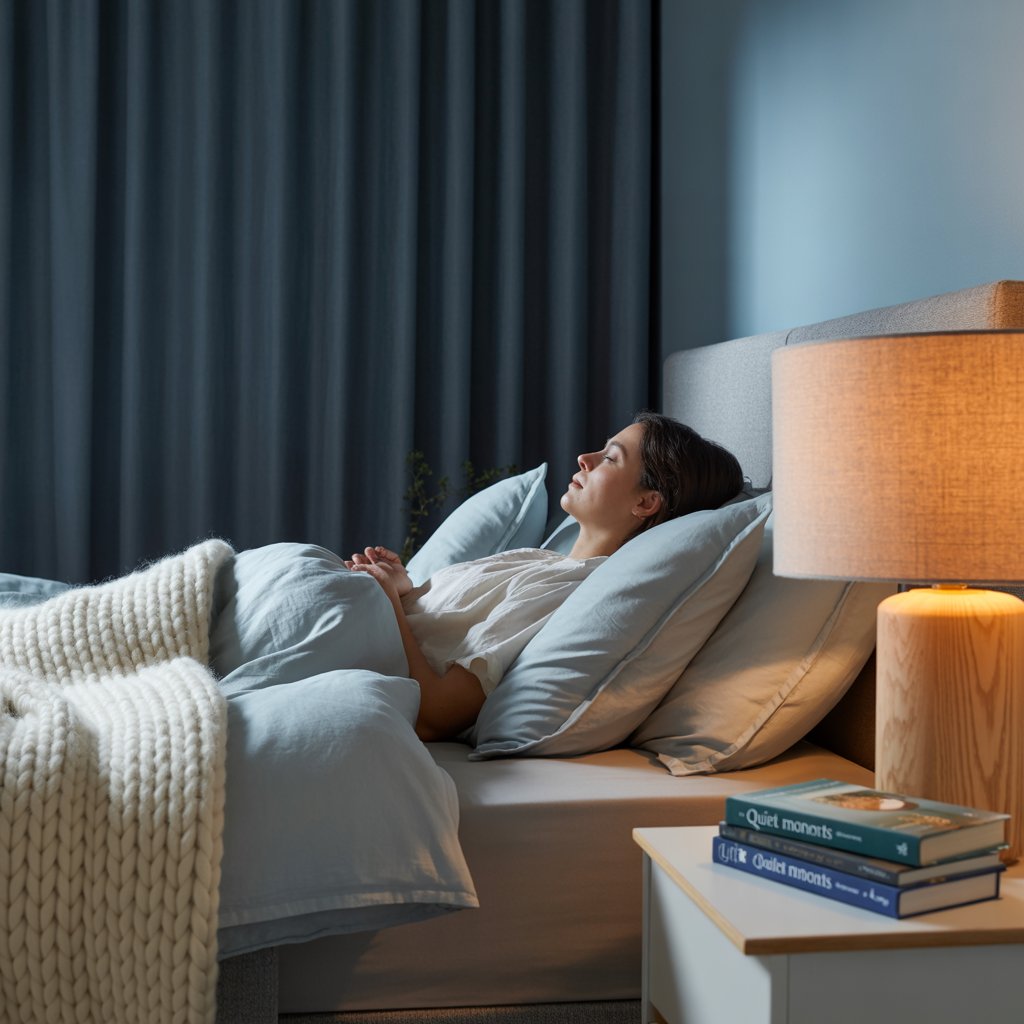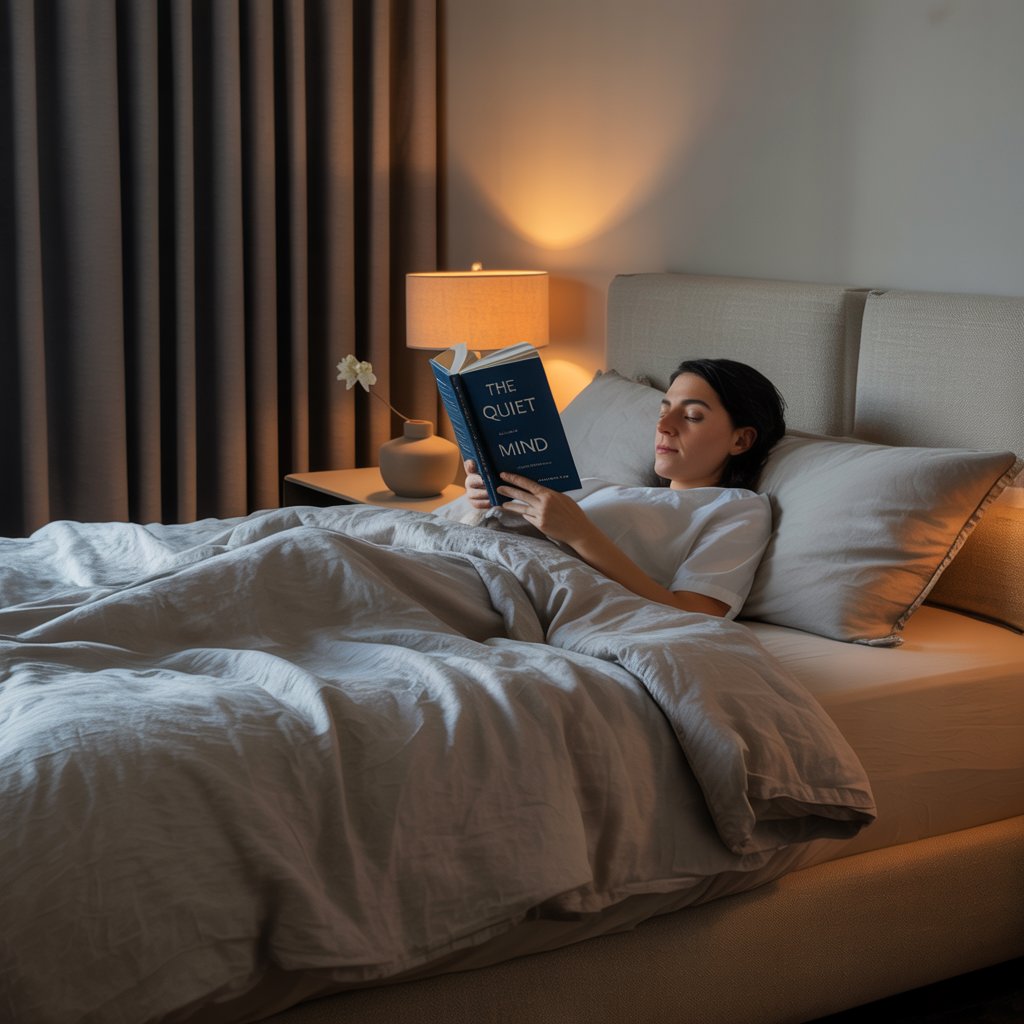Tips for Better Sleep: How to Improve Sleep Quality and Boost Mental Health
Sleep Creating the Perfect Sleep EnvironmentSmarter, Feel Better: Simple Changes with Big Impact
📌 Introduction
In today’s fast-paced and hyper-connected world, getting quality sleep has become increasingly challenging. The constant stimulation from digital screens, demanding work schedules, late-night distractions, and elevated stress levels all contribute to disrupted sleep patterns and poor rest. Many people find themselves tossing and turning at night, struggling to unwind after long, overstimulating days.
Yet sleep is not a luxury or a reward—it’s a non-negotiable foundation of overall health. Just like nutrition and exercise, sleep plays a critical role in supporting our physical, emotional, and cognitive well-being. It helps regulate mood, strengthens memory, boosts immune function, and enhances our ability to manage stress.
This article offers practical, science-backed strategies to help you improve the quality of your sleep. Whether you’re dealing with occasional restlessness or chronic insomnia, these simple yet powerful habits can help you reset your sleep-wake cycle and promote deeper, more restorative rest. By making sleep a priority, you’re also investing in a healthier, clearer, and more resilient version of yourself
💡 Why Sleep Matters
Sleep plays a critical role in regulating mood, memory, cognitive function, and immune health. Numerous studies link poor sleep to anxiety, depression, and decreased emotional resilience. In contrast, high-quality sleep is associated with:
- Improved brain performance
- Greater emotional stability
- Higher overall life satisfaction
⏰ 1. Stick to a Consistent Sleep Schedule
Going to bed and waking up at the same time each day helps regulate your internal body clock, or circadian rhythm. This biological clock controls hormone release, alertness, and sleep quality.
✅ Tip: Set a consistent bedtime alarm, just like your morning alarm—even on weekends.

📵 2. Limit Screen Time Before Bed
Devices like smartphones and laptops emit blue light, which suppresses melatonin, the hormone that promotes sleep. Limit screen use at least one hour before bedtime.
💡 Instead: Read a book, journal, stretch gently, or listen to calming music.

🛏️ 3. Optimize Your Sleep Environment
Your bedroom should support rest, not stress. Ensure your sleep space is:
- Cool
- Quiet
- Dark
Invest in blackout curtains, a quality mattress, and white noise or a fan if needed.
💡 Bonus Tip: Use your bed only for sleep and intimacy—avoid working or eating in bed.

🍽️ 4. Watch What You Eat and Drink
Avoid caffeine, large meals, and alcohol close to bedtime. These disrupt the sleep cycle—even if they make you drowsy at first.
☕ Try instead: Herbal teas like chamomile, valerian root, or lemon balm.

🧘 5. Practice Relaxation Techniques
Mindfulness, meditation, and deep breathing exercises can lower your heart rate and calm your nervous system before bed.
📱 Recommended apps: Calm, Headspace, Insight Timer
🏃 6. Exercise Regularly—but Not Too Late
Daily physical activity improves sleep quality and reduces anxiety. Just avoid intense workouts within three hours of bedtime, as they may keep you alert.
🧠 Mental Health Benefits of Quality Sleep
Consistently good sleep supports mental health in powerful ways:
- Better emotional regulation
- Reduced risk of anxiety and depression
- Improved concentration and decision-making
- Healthier relationships
- Enhanced immune system
📢 What Helps You Sleep Better?
💬 We’d love to hear your experience!
Have a favorite sleep hack or nightly ritual? Share it in the comments below.
✅ Final Thoughts
Improving your sleep doesn’t require a complete lifestyle overhaul—it starts with small, intentional steps. By making consistent and mindful adjustments to your daily habits—such as limiting screen time, creating a calming bedtime routine, watching what you eat and drink, and optimizing your sleep environment—you can dramatically enhance the quality of your rest.
Good sleep hygiene isn’t just about getting more hours of sleep, but about improving the quality of those hours. Prioritizing your sleep means investing in your mental clarity, emotional balance, physical health, and overall well-being. With time, these positive changes can lead to deeper, more restorative sleep, improved concentration, better mood regulation, and a greater capacity to handle daily stress.
Remember, restful sleep is not a luxury—it’s a foundation for a healthier, more focused, and more resilient life.
📚 References & Further Reading
- National Sleep Foundation
- CDC – Sleep and Sleep Disorders
- Harvard Medical School – Sleep and Mental Health